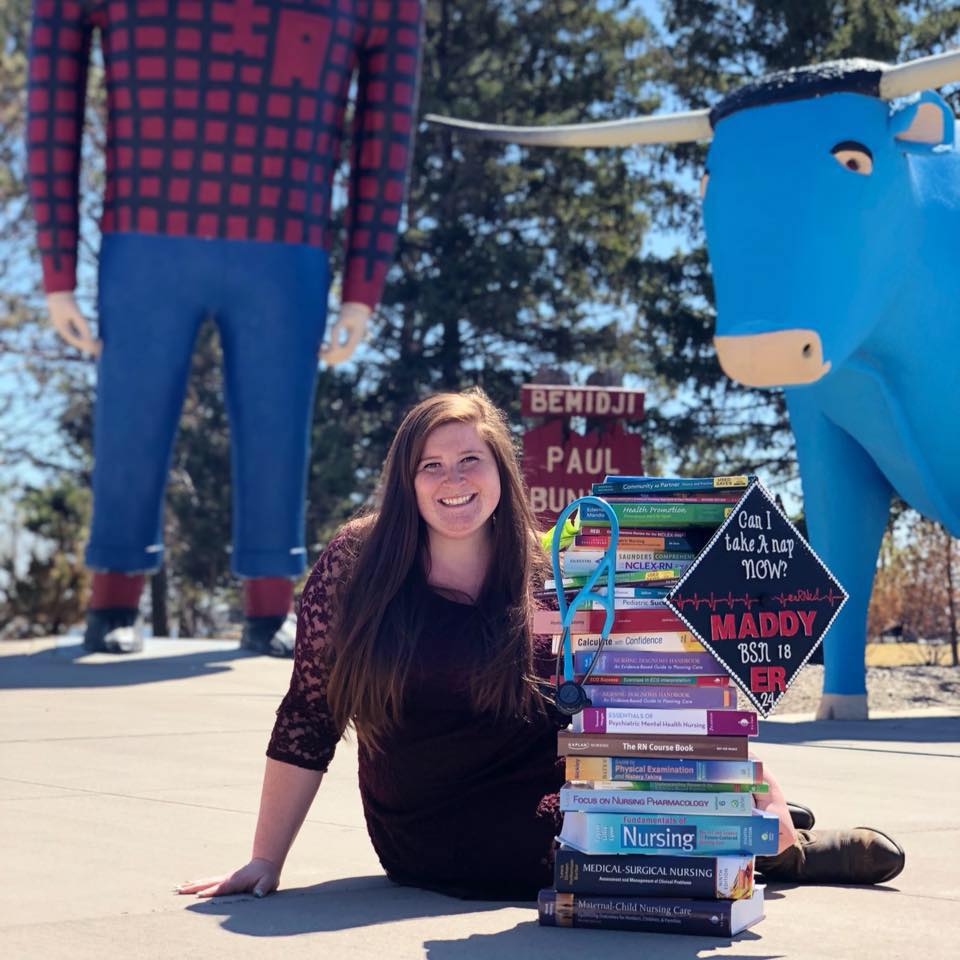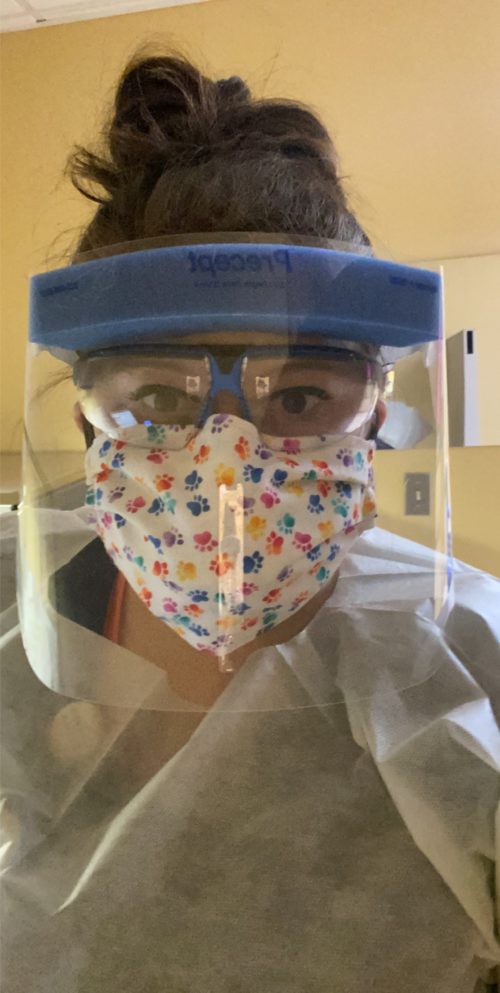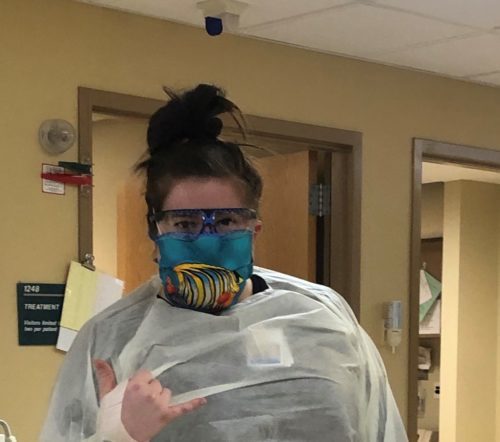Mountain Iron, Minn. native Maddy Kinter '18 is a registered nurse in the emergency department at M Health Fairview Northland Medical Center in Princeton, Minn. She has been working hard to provide the best possible care to patients in the midst of the COVID-19 pandemic, despite challenges that few could anticipate.
We caught up with Maddy to learn more about her work, how she is holding up to stress and how the public can support those working in the healthcare field.
BSU Alumni & Foundation: Why did you choose to become a nurse?
Maddy Kintner: I chose nursing because I have always been interested in the medical field. When I went to college, my grandparents and uncle became terminally ill and I wanted to help people after seeing how wonderful their nurses were.
What do you find most rewarding about your job?
I get to learn a lot of new things every day. I have great co-workers and friends that I work with and I see a lot of patients that challenge me.
How would you describe the current situation at your hospital?
We are staffed appropriately. Our hospital is not doing many elective surgeries and outpatient procedures at this time. We have operating room staff cross-training with the emergency department for if and when a surge happens.
What are your biggest challenges in caring for patients right now?
When a PUI {Person Under Investigation, meaning a patient who is experiencing COVID-19 symptoms or may have been exposed to a COVID-positive person} comes into the E.R. These cases are time-consuming and we are to limit the number of staff going into that patient’s room. The other day I had a patient who was having a stroke, had a critical heart rate and was also a PUI. I didn’t leave their room for 3 hours and 50 minutes.
What previous experiences best prepared you for situations like that?
Nothing has prepared me for a pandemic. You read about it in school and hear about it from people who have been in the healthcare field longer than you. But no one signed up to not have the proper PPE (personal protective equipment) to be fully protected at work - that has been the hardest thing.
How do you remain physically, emotionally and mentally healthy during this time?
I try to get as much sleep as I can. It is hard not being able to see friends and family, but I am thankful to have co-workers who keep me sane because we’re all in the same boat. I utilize FaceTime to keep in touch with others, read and go outside to relieve stress.
What advice do you have for other front-line healthcare professionals who may be struggling with the pressures of the current situation?
Lean on your co-workers. They understand how you feel.
From your perspective, what should the general population know about the virus, how to stay healthy and what hospital staff is doing to help keep the COVID-19 impact to a minimum?
People should know that it is not something to take lightly. There are likely more carriers that are asymptomatic than symptomatic and everyone’s symptoms present differently. Read information from credible sources - don’t rely on the news to have the most accurate COVID-19 information. Also, please wash your hands properly.
What can we share with our audience about how they can support healthcare professionals like you right now?
Be patient with us. We don’t get access to secret knowledge. We are all trying to figure out the best way to care for COVID-positive patients and potential carriers as best and as safely as possible. Please don’t overwhelm emergency departments by coming in wanting to be tested. Criteria for testing for COVID-19 changes hourly; we simply can’t test everyone just so “they can know.”



